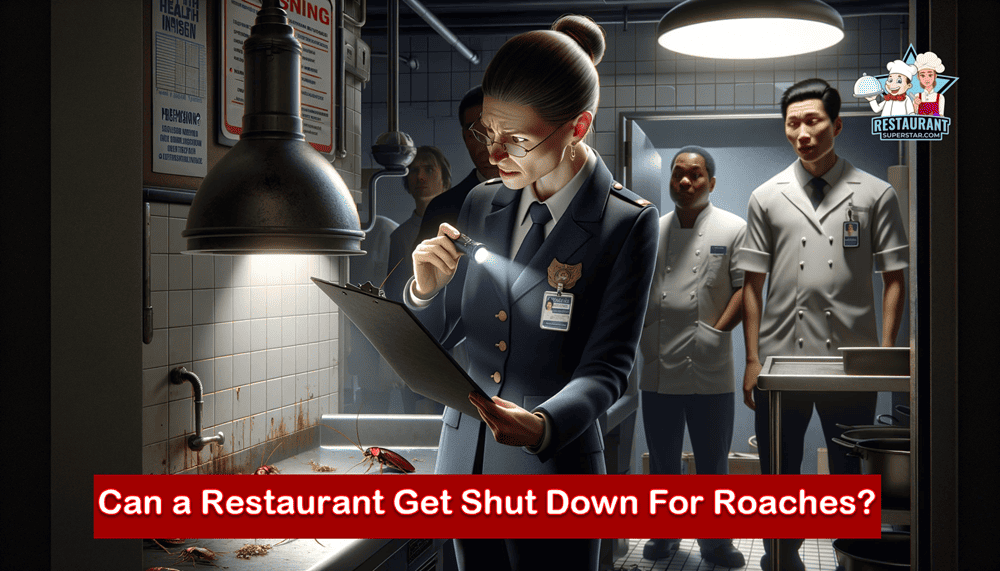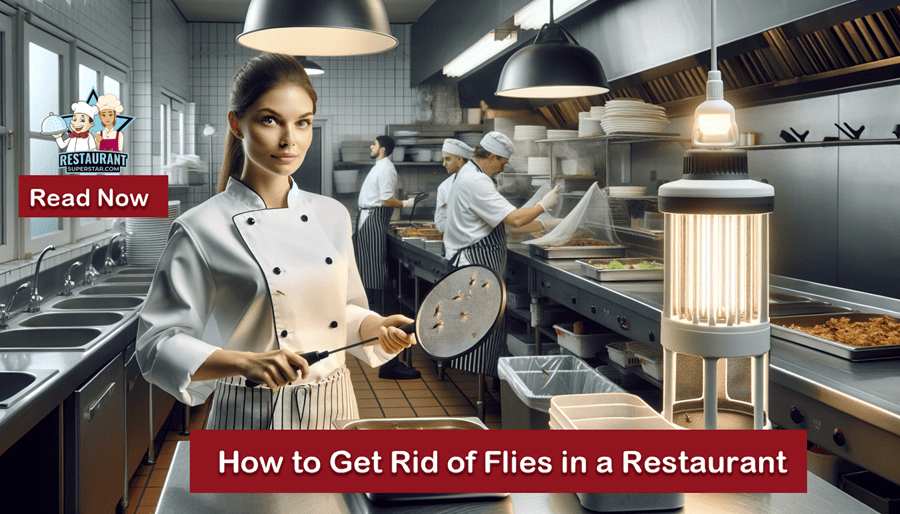What Do Chefs Do? (19+ Important Facts)

If you enjoy the process of cooking in general, I’m pretty sure you would be contemplating being a chef. That’s great! There are different trainings you’d undergo to become a chef, and the first thing you need to know is, “What do chefs do?”
A chef may be highly creative with food, creating new dishes, selecting daily specials, and creating a fascinating menu. I’m sure you want to know more, so let’s get started.
What do chefs do? Chefs oversee restaurant kitchen personnel. Everything from the menu, cost of each dish, cost of materials used in preparation, food safety, personnel management, and quality is taken care of.
Gaining experience in the kitchen takes a lot of work. The chefs’ meticulous preparation ensures delicious, well-seasoned, and visually appealing dishes.
As the title implies, it’s an executive role that doesn’t require much cooking. In restaurants without an executive chef, head chefs are the people in charge of running the kitchen.
Sous chefs are next in line and typically act as the head chef’s top assistant. The bulk of day-to-day tasks in the kitchen report to the sous chef. Once that person is in place, they may be followed by a team of cooks, line cooks, prep cooks, and others, each responsible for a different step in the cooking process.
How to Become a Chef?
The stages you need to take to become a chef can change based on your present knowledge, abilities, and desire to learn. The most typical path to becoming a chef is as follows:
1 – Start with a low-level position at a restaurant.
Gaining experience in an entry-level role will help you learn some of the necessary skills and will also help you determine if being a chef is the right career choice for you. Examples of entry-level jobs are food runner, waiter, or dishwasher. Without experience, you can probably get work as a line cook at a casual restaurant.
2 – Get your GED or high school diploma.
Most firms prefer chefs with a GED or high school education. Additionally, applicants to culinary schools must have a high school diploma. Some organizations provide apprenticeship programs, although admission to these requires a high school diploma or GED.
3 – Pass the culinary arts program.
A culinary school degree will offer you an advantage over the competitors for most chef roles in restaurants and other comparable food industry businesses. You can hone your cooking skills by attending culinary school, where you will obtain specialized knowledge and techniques.
Depending on the institution and your plans for specialization, you can obtain some different culinary degrees or diplomas. You can earn a diploma in baking and pastry arts and an associate’s or bachelor’s degree in culinary arts. The culinary school can be finished in one to four years, depending on the program.
4 – Obtain relevant work experience.
Working a part-time job or doing an internship while enrolled in a culinary program can be beneficial to start gaining experience. You can apply for full-time work in kitchens after you graduate.
Alternatively, you can do an internship where you’ll get paid and earn real-world experience. Ensure to mention your culinary arts diploma or degree and any related experience when you apply for positions.
As a chef, there are numerous prospects for progress, so keep working hard and developing your skills to obtain promotions.
5 – Take the certification exam.
Some want to continue their quest and earn Canada’s top culinary accolades. The top designation a chef can get in Canada is Certified Master Chef (CMC), offered by the Canadian Culinary Institute.
The most prestigious professional title for cooks in Canada is Certified Chef de Cuisine (CCC). Candidates must have years of experience working at the highest levels to apply to both programs.
Types of chef and roles
Executive Chef
Executive chefs typically work for major chains or establishments; not every restaurant has one. An executive chef typically doesn’t do much actual cooking. Their main responsibility is overseeing the kitchen’s staff.
This entails managing the culinary budget, creating meals, supervising and training staff, and occasionally purchasing. You must have prior cooking expertise to ensure that the kitchen is operated effectively as an executive chef.
Sous Chef
The second in command in a kitchen is the sous chef, also known as the deputy chef. Multiple sous-chefs are possible. Depending on the restaurant and its administration. Even though the sous chef’s duties may exceed those of the head chef, they almost always do. The sous chef is in charge of running day-to-day operations in the kitchen.
Pastry Chef
In a professional kitchen, a pastry chef, also known as a pâtissier, is a station chef who specializes in baking pastries, sweets, breads, and other baked items. Preparing a variety of sweets, including pastries, cookies, and other confections, is the responsibility of pastry chefs, also called dessert chefs. They can work in various food-related fields and are typically part of a bigger team of chefs.
Fry Chef
Fry chefs are responsible for preparing the food for frying, supervising the fryer to ensure the food doesn’t overcook, and maintaining the deep fryer to ensure it’s working correctly and safely. The cooking of fried foods is her area of expertise.
Grill Chef
A grill chef, also known as a grill cook, is an expert at cooking on a grill or grill station. Although the grill chef can use the grill to cook different types of food, he is responsible for grilling various meat dishes.
Sauté Chef (Saucier)
A position in the traditional brigade-style kitchen is known as a saucier or sauté chef. In addition to making sauces, the saucier also makes stews, hot appetizers, and sautés food to request.
The position that reports directly to the head chef or sous-chef in the brigade system of stations is frequently the most valued. They are responsible for sautéing the meal, but their most important task is creating the dipping sauces and gravies.
Job Description of a Chef
A chef is the head cook of a restaurant or similar establishment. They and other staff members monitor the kitchen and its operations to ensure that all meals are prepared properly. They watch over the cooking, garnishing, and plating of the food and the seasonings to ensure that it tastes great.
Before making orders for food or kitchen supplies, a chef provides an estimate to the company. They monitor manufacturing schedules and employee availability to guarantee timely service.
The manufacturing, processing, and preparation of food are all areas that a chef or head cook should be well-versed in. To satisfy customers, they must possess customer knowledge and interpersonal skills. They must be knowledgeable about public safety and security.
A chef should be able to monitor things, work with others, and communicate clearly. They require time management, listening actively, judgment, and decision-making abilities. He or she can develop a concept or novel application to improve individual or group job performance.
To help other kitchen personnel enhance their abilities, a chef would coach and mentor them. A kitchen relies on a collaborative team effort, so the chef or head cook would promote mutual respect and trust among the crew. Any business that serves food might need a chef or head cook.
They come in early in the morning, stay late into the night, and even work on the weekends and holidays. This work schedule is often full-time and quite hectic. Since competition is certain to be severe in places like high-end restaurants, casinos, and hotels, where pay tends to be higher.
How Does a Culinary Chef’s Workplace Look Like?
The job environment for a culinary chef can be highly varied, ranging from private kitchens, hospitals, senior homes, cruise ships, and even serving meals for film sets.
For the typical chef, long and late hours are practically a given. Even though many restaurants close at 10:00 p.m., their kitchens are not cleaned and ready for the following day until 2:00 a.m.
What Do Chefs Do? (FAQ)
What Is the Role of a Chef?
The role of a chef involves reading over recipes, planning meals, and creating dishes of the highest caliber. To guarantee that meals are made on schedule, you should be able to assign duties to kitchen employees. You should also be knowledgeable about sanitary laws.
What Does a Chef Do on a Typical Day?
A chef’s typical day involves creating the menu, controlling the spending, setting the prices for menu items, making the food, buying the ingredients, ensuring the service is of a high standard, assuring safety, and supervising the workers. To become a chef, one must put in a lot of effort. Chefs ensure the food is correctly cooked, seasoned, and aesthetically pleasant.
What Abilities Are Necessary to Become a Chef?
Being a chef might involve practical training, and as they say, practice makes perfect.It takes more than just following directions to become a chef.
Creating a menu, the presentation of the dish on the plate, and the way it tastes to the patrons all require creativity on the part of the chef.
In arranging the functionality of the kitchen, they will also use creativity. The chefs sometimes handle the restaurant’s design, table settings, and seating arrangements. Don’t be afraid to try new creative ideas because a chef’s reputation for creativity attracts customers.
What Should I Study to Become a Chef?
One can enroll in a variety of Certificate, Diploma, Undergraduate, and Postgraduate programs to become a chef, including a BSc in Hospitality and Hotel Management, a BSc in Catering Science and Hotel Management, a Certificate in Food Production and Patisserie, a PG Diploma in Culinary Arts, and a BA in Culinary Arts, among others.
Is Being a Chef a Good Job?
Thanks to the Booming Restaurant Industry, Many Individuals See Becoming a Chef As a Way to Make a Good Living. The Food Network’s Expansion and the Rise of Celebrity Chefs on Youtube Have Also Glamorized the Sector. But the Restaurant Business Is Not at All Like What You See on Television.
What Does It Means to Be a Chef?
Becoming an expert in many different meal flavors and cooking techniques may take a lot of time and work. To become a great chef, you must always be open to learning new things.
The kitchen is overseen by a chef at eating establishments, such as restaurants. They supervise all activities and food preparation with other employees that could assist in the kitchen. They monitor the cooking process to ensure the food is garnished, presented and has the ideal quantity of spices for a delectable dinner.
How Many Hours Does a Chef Work?
The typical chef job requires working more than 50 hours weekly, including nights, weekends, and holidays. As a chef, you can count on working seven days a week, with shifts lasting anything from 12 to 14 hours. And that pretty much reflects the norm in the field.
Is Being a Chef Hard?
It takes endless hours of laborious work, particularly in the beginning. That’s what the US government says, anyhow. According to the BLS, a chef or head cook can expect to earn a median annual pay of $53,380, or $25.66 per hour (BLS). But if you pursue formal schooling, the cost of adequate instruction for a chef might be high.
What Distinguishes a Cook from a Chef?
Simply put, a chef has received training in flavors, cooking methods, developing dishes from scratch using fresh materials, and having a high level of responsibility in the kitchen. A cook is someone who makes food for others using specific instructions.
Who Cooks Food Called?
They are responsible for cooking, monitoring the daily operations, and, in the absence of a head chef, acting in that capacity. The head chef is known as Chef de Cuisine.
Do Chefs Get Paid Well?
The average hourly wage for cooks in the United States is $15.02. Nonetheless, a person’s compensation may be significantly impacted by the type of chef they are. For instance, executive chefs earn an average of $31.37 per hour, more than twice as much as chefs.
Additionally, head chefs earn an average of $23.57 per hour more than other chefs. At an hourly rate of $23.39 on average, sous cooks are paid similarly to head chefs. Furthermore, a chef’s average wage may be significantly impacted by their geographic location.
Why Do Chefs Quit?
It could be quite stressful for chefs. It’s possible that pressure is the main reason cooks leave their jobs and why most do so. It can be very difficult to work in a crowded kitchen during a service in the evening. It’s sad that when something goes wrong, it usually snowballs, and everyone has a difficult day at work.
How Stressful Is Being a Chef?
Based on data from 2014 and 2015, the most recent working conditions study found that cooks face the most pressure due to the speed at which they must work.
Due to their long hours, 51% of chefs experience depression, and 78% have experienced an accident or near-accident at work. To get through a shift, several chefs admitted to using painkillers (56%), alcohol (27%), and other stimulants (41%).
CONCLUSION
Chefs in the food industry have unique personalities. The characteristics of entrepreneurial people include risk-taking, ambitious, forceful, outgoing, energetic, enthusiastic, confident, and positive. They are commanding, persuading, and inspiring.
A few of them also have artistic qualities, which include creativity, intuition, sensitivity, articulation, and expressiveness. If all this describes you, you’re on the right track to being a chef.
Jeff Smith is a Restaurant Consultant with over 20 years of hospitality experience ranging from server to owner and general manager. He focuses on Restaurant POS technology as well as restaurant marketing. Make sure to check out our world famous restaurant resources page for a comprehensive offering of hand picked resources and tools to help your business. You can also check out some of our other restaurant business articles.


